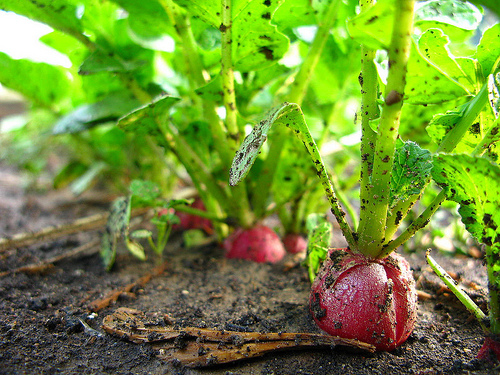We interact with food in our everyday life. Whether it be deciding what we should eat for breakfast, lunch, or dinner, we all encounter food. Food is one of the biggest things we can all relate to, a universal language everyone can understand. There’s always something more we can learn about the food we eat, that instant ramen that was last week’s meal or the organic local apples you picked up at nearby market. One thing is for sure, our lives are very food centric and we need to learn about the differences we can make with our food supply and how it fits together with businesses and impacts us for the future.

Photo courtesy of simplebites.net
The ways we look at sustainability will help shape what the food industry will be for generations to come. A term that goes hand-in-hand with green and the environment is one of the ways to investigate the food industry. We need to examine our own food methods and the ways we can improve the overall consumer system and make it more sustainable. Our bodies are made up what we eat. So getting the information about what we are eating is important to offering insight about why eating instant ramen everyday of the week isn’t the best idea for you and your body.

Photo courtesy of storyzest.com
Sustainability offers more to the food industry than people realize. Not only is it beneficial to consumers but also to businesses. It’s a great business strategy to have for long term profit and that’s why companies are doing it. There’s been a history of successful businesses that have become more sustainable such as Patagonia and Toms. Sustainability exists in so many different realms and it is so intertwined it needs to be recognized as an opportunity in the food industry.

Photo courtesy of wired.com
The University of Oregon’s Net Impact club is hosting their annual SPRNG conference on Earth Day (4/22) to challenge what it means to be a food centric and sustainable through panels such as a debate between Monsanto and Whole Foods and conversations to teach others how something that might be organic is not what it seems to be. Sustainability in food can be integrated in so many different industries and acting on the food industry will help change the way people engage and look at food, inspiring others to be more aware and take action for their love of food.


